As a dietitian/nutritionist the majority of my focus is on how food impacts our bodies and our health. But it is so important to also recognize the global impact of our food choices.
We need to not just include our health in the decision, but also the biodiversity of the planet and our ability to grow food for future generations.
Start making small changes in your food choices today to positively impact our planet and the ability to grow food for future generations #sustainability #saslife Click To TweetMost of our food comes from farms that no longer grow local, resilient, genetically diverse and nutrient dense varieties that were once the mainstay of small farms. These large agricultural industries use only genetically uniform or GMO high yield varieties that require intensive use of fertilizers, pesticides and herbicides. These practices are destroying the soil, resulting in less nutrient dense plants and an increased need for irrigation and fertilizer. High yield and low cost. However, the invisible costs of our food system including depletion of fresh water, forests and soil, damage to our oceans, loss of biodiversity, pollution, chronic disease, and its economic burden show the real cost.
The way animals are raised as a part of this food system is even worse. Concentrated Animal Feeding Operations (CAFOs), also called feedlots, “conventionally grown” or Industrial Food Animal Production (IFAP), are arguably the most damaging aspect of our food system to the environment.
And, if you are at all concerned about social justice, the treatment of the largest sector of workers, or food politics, then paying attention to your food choices is something to consider as well.
“How we eat determines, to a considerable extent, how the world is used.”
Wendell Berry
What to do now: Start making small changes
- Eat at home more often
- Eat less highly processed foods
- Eat less CAFO meat
- Choose grass fed, pasture raised, regeneratively raised or wild caught as much as possible
- Eat more beans and lentils
- Reduce food waste
- Plan meals, utilize leftovers
- Shop your pantry and fridge first
- Check out your local farmers markets and CSAs
- Use the EWG Dirty Dozen and Clean Fifteen lists
- Reduce your use of bottled water, disposable coffee cups, plastic forks, and other single use plastics
- Grow your own food (or make friends with someone who does)
What we do matters. What we choose to eat every day is the single most important thing you can do for your health, the environment, social justice and to reverse climate change. Do your best.
For more details, check out Healthy and Environmentally Friendly Food Choices.
Soft + Chewy Baked Granola Bars
Makes 10-12 bars
Recipe Adapted from: Oh She Glows
PRINT RECIPE
Ingredients
¾ cup rolled oats (gluten free if needed), ground into a flour
1 cup water
¾ cup packed pitted Medjool dates
½ cup chia seeds
¼ cup raw sunflower seeds
¼ cup raw pumpkin seeds
¼ cup raisins or other dried fruit, finely chopped OR dark chocolate chips
1 tsp cinnamon
1 tsp pure vanilla extract
¼ tsp fine grain sea salt
Directions
1. Pre-heat oven to 325F and line a 9-inch square pan with two pieces of parchment paper, one going each way.
2. Place rolled oats in a high-speed blender. Blend on highest speed until a fine flour forms. Add oat flour to a large bowl.
3. Add water and pitted dates to blender. Allow the dates to soak for 30 minutes if they are a bit firm or your blender has a hard time blending dates smooth. Once they are soft, blend the dates and water until super smooth.
4. Add all of the ingredients into the bowl with the oat flour and stir well until combined.
5. Scoop the mixture into the pan and spread it out with a spatula as evenly as possible. You can use lightly wet hands to smooth it down if necessary.
6. Bake at 325F for about 15-20 minutes, or until firm to the touch. Let cool in the pan for 5 minutes and then lift it out and transfer to a cooling rack for another 5-10 minutes.
7. Slice and enjoy! Store in the fridge or freezer to preserve the leftovers.
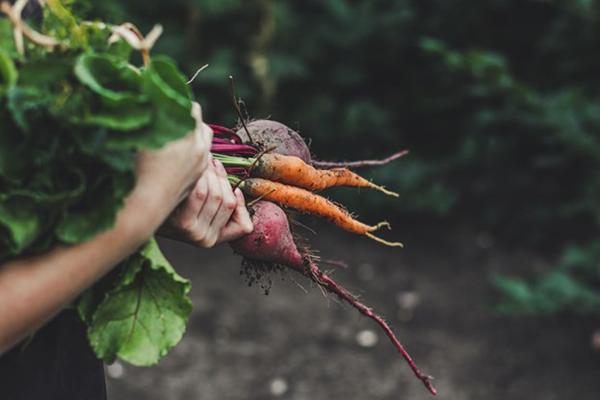
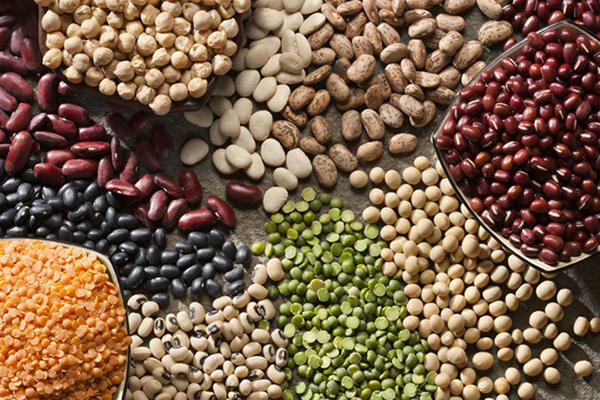
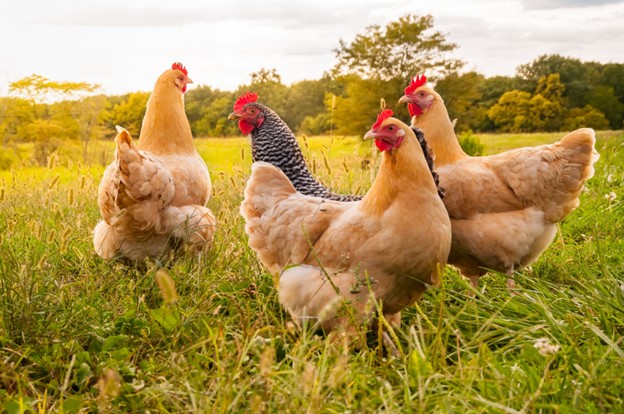
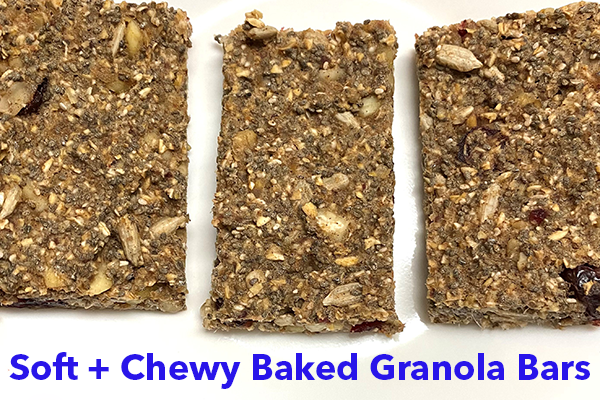
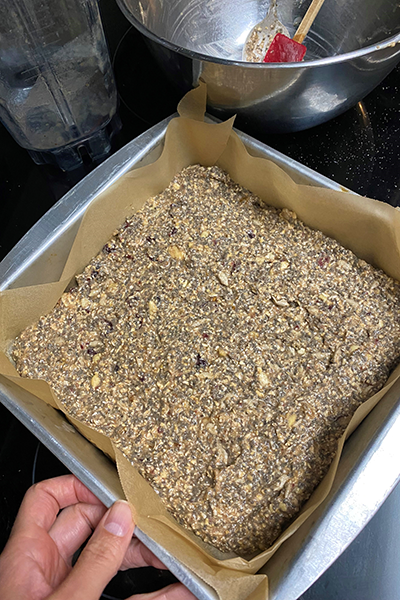
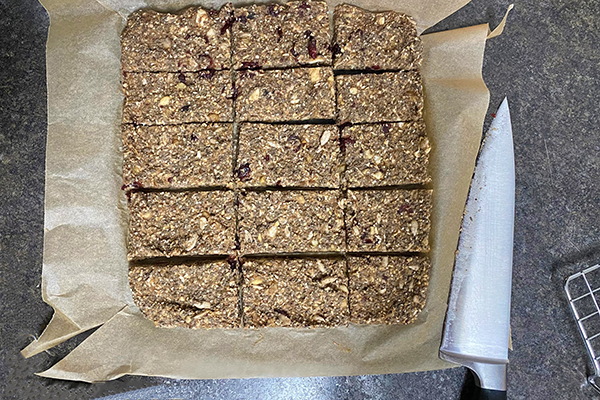
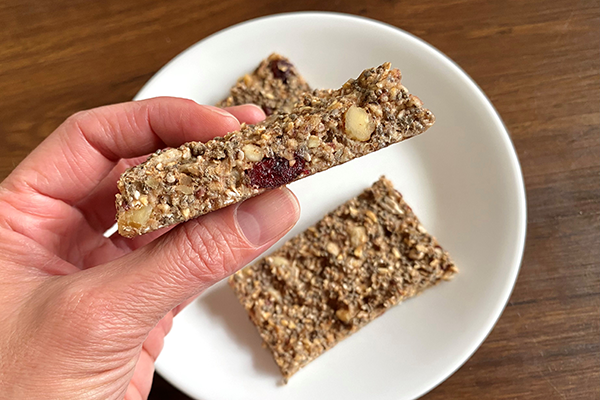

4 Comments
Kelly, I love this article! Thanks for sharing. I can't wait to try the granola bar recipe. My current recipe is tasty, but a bit crumbly.
Thanks! These granola bars are soft, just don't overbake them. 🙂
Great blog, Kelly! I have forwarded it to several family members and friends.
Thanks Cathy! 🙂